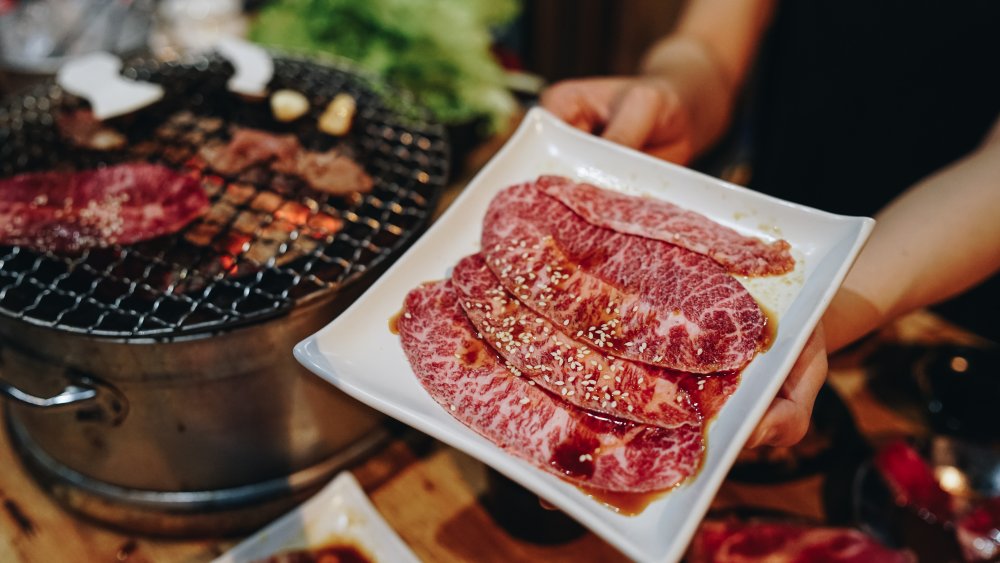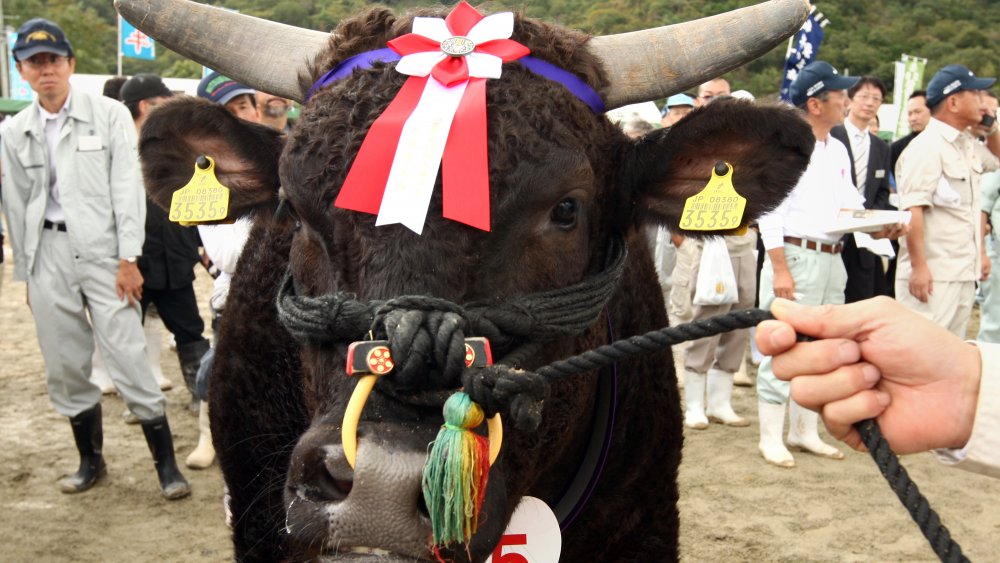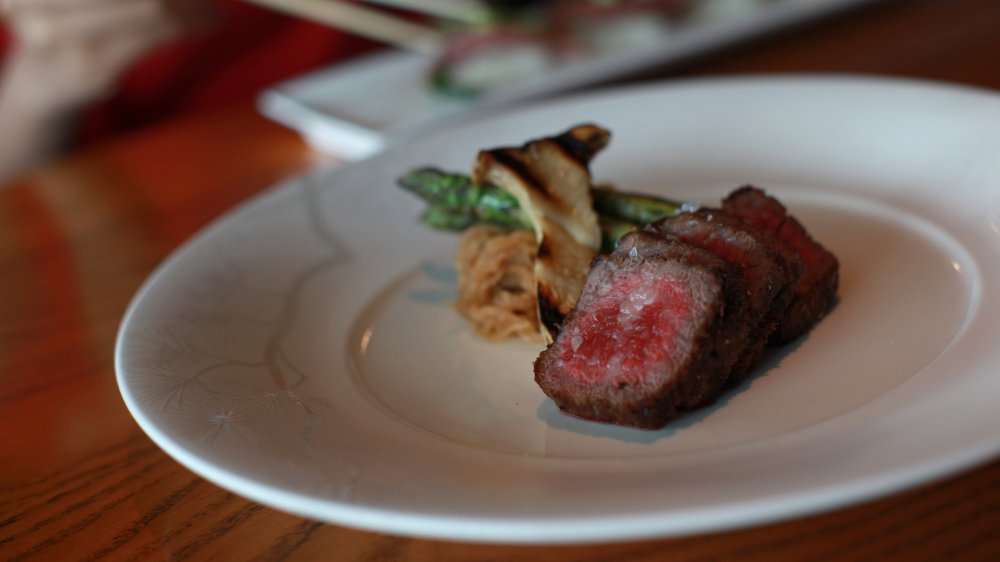Why Is Kobe Beef So Expensive?
Kobe beef may not be the world's priciest steak, but it's certainly spendy, retailing even in its native Japan for up to 43,000 yen (the equivalent of $395 a kilo). If you want to purchase real-deal Kobe beef in the U.S. — well, good luck with that, there are only 36 restaurants in the nation that are authorized by the Kobe Beef Marketing & Distribution Promotion Association to even sell the stuff.
According to Menu With Price, New York's 212 Steakhouse sells Kobe steaks for $22 per ounce, with a minimum of three ounces per order — so, basically, that's $66 for a tiny little taster, since 3 ounces is a portion size only the USDA could love.
So what makes Kobe beef so wildly exorbitant? According to the South China Morning Post, it's all about exclusivity. While all Kobe beef is Wagyu, only a tiny fraction of Wagyu beef can be certified as Kobe. As the SCMP characterizes Kobe beef, "It is to the Wagyu industry what Dom Perignon is to champagne."
What kind of beef can be Kobe?
About 90 percent of all Wagyu beef comes from a breed of cattle called the Japanese Black, but Kobe beef comes from only one of this breed's primary bloodlines, the Tajima. This small, slow-to-grow breed is prized for having superior meat and high-quality marbling.
In addition to being of Tajima stock, a cattle destined to become Kobe beef must be a heifer (girl cow) or bullock (a boy cow that's been, er, "fixed"), must be raised by a certified Kobe rancher, and must have been born, raised, and slaughtered within Japan's Hyogo Prefecture. There are additional regulations regarding the actual grade and quality of the meat itself once it's been processed — needless to say, only the best tasting beef gets to be Kobe.
The legend of Kobe beef
We've all heard the rumors... that Kobe beef cattle are massaged daily, are given beer to drink, and even receive rubdowns with sake while listening to classical music. Are Kobe cattle really that pampered? Well, yes and no, or more like maybe.
None of these are requirements, but beer is thought to stimulate the animals' appetites in the summertime, while music and massage can decrease tension and stress, which does lead to better-quality meat. Some farmers do actually brush their beasts with sake to soften their coats, but this practice is more rare since it doesn't really contribute much to the taste of the beef.
So is Kobe beef really worth the hype — and the Benjamins? Some would say yes, some would say no, but frankly, what with only 3,000 head of cattle per year qualifying as Kobe, most of us will never really know.


